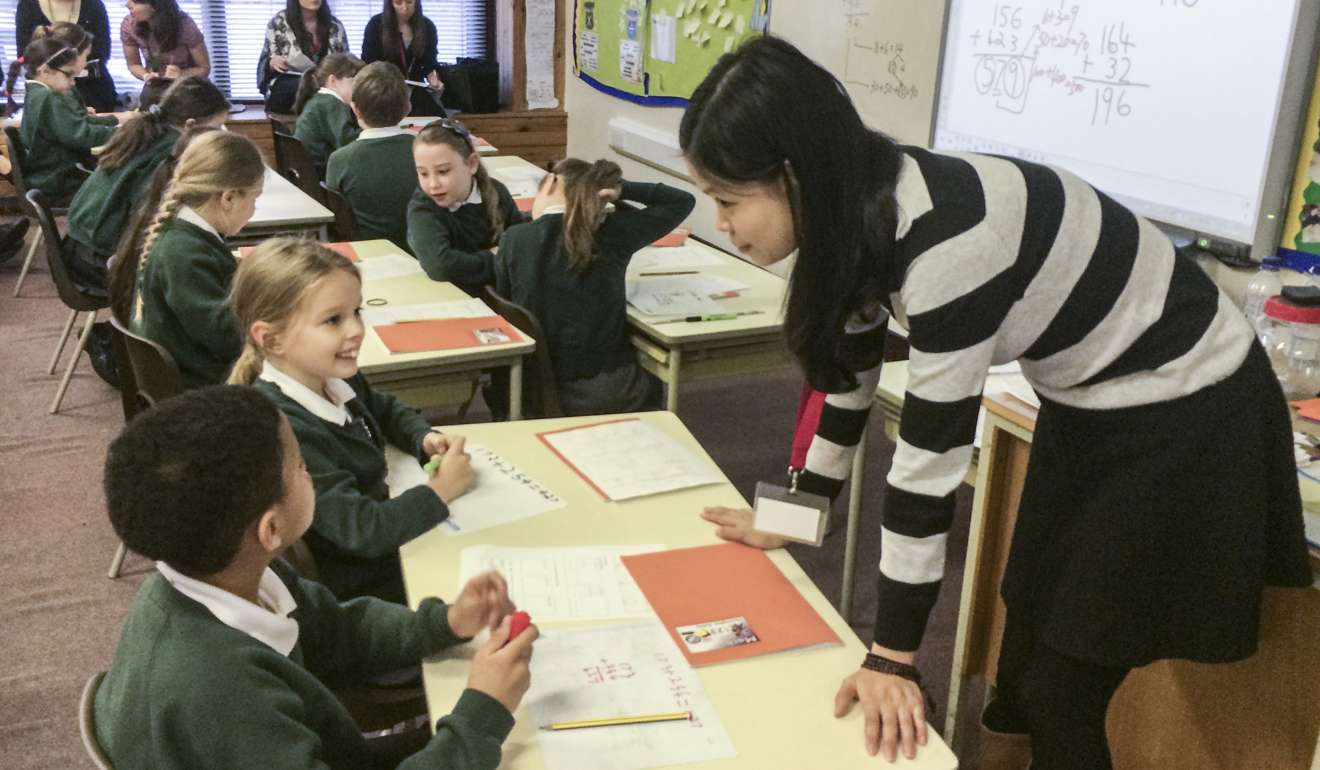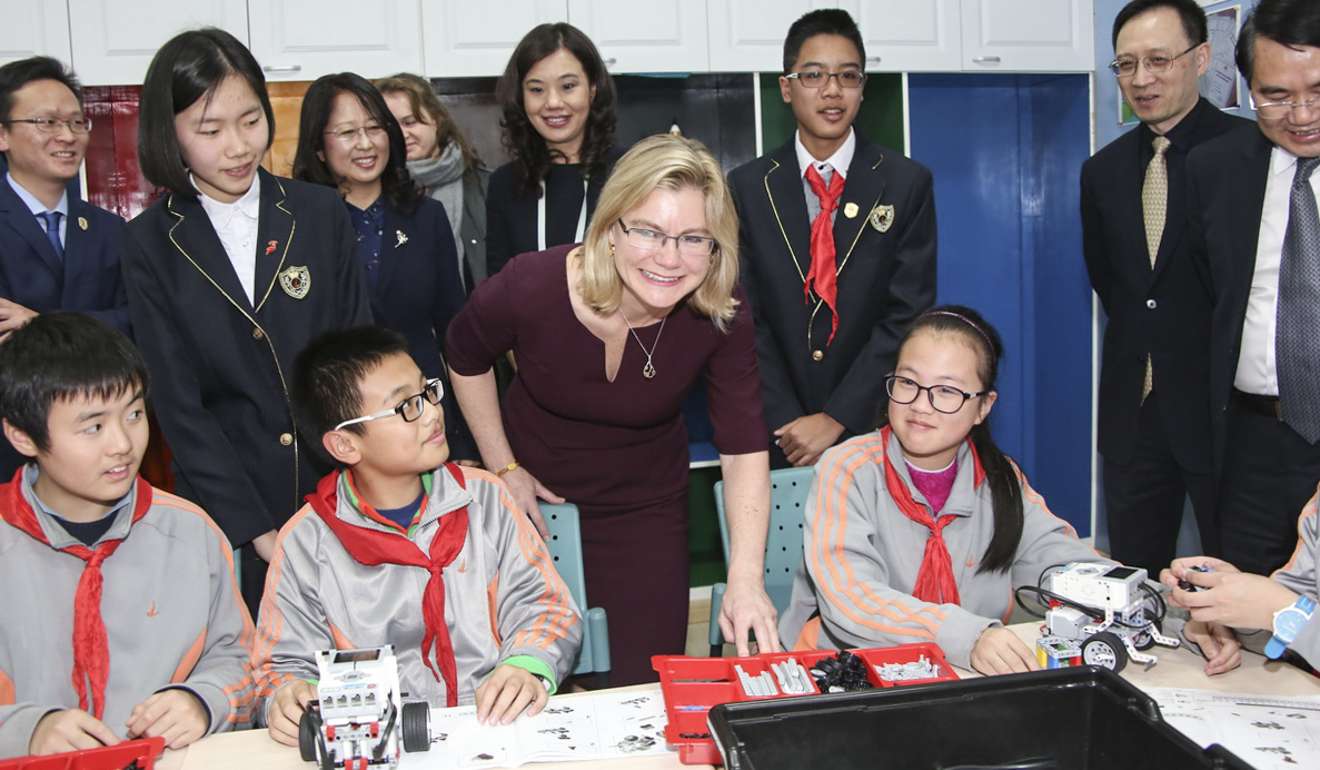
Shanghai maths textbooks bound for British primary schools
Publishing deal hailed as ‘delightful evidence’ of China’s rising soft power
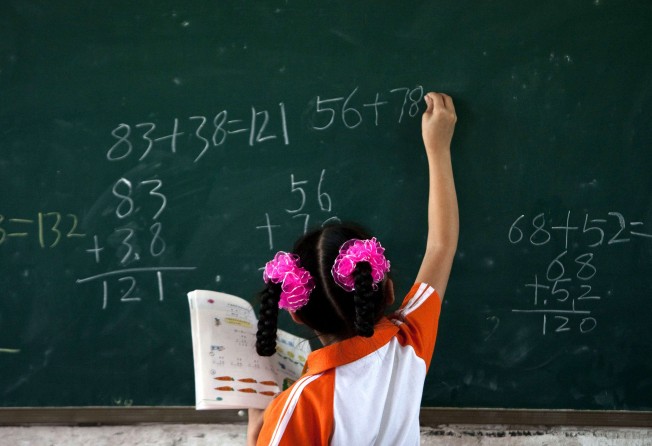
While more children in Shanghai are attending international schools, a recent deal to export the city’s mathematics textbooks to Britain has given the local education authorities a shot in the arm.
The agreement signed last month between British publisher HarperCollins UK and government-backed Shanghai Century Publishing was “historic”, Collins Learning managing director Colin Hughes said.
The British company will publish translations of 36 maths textbooks, exercise books and teacher’s guides used in Shanghai’s public primary schools. They will be available for use in British primary schools from September.
Zhang Minxuan, a comparative education expert and a former vice-director of Shanghai’s municipal education commission, said the exporting of Shanghai’s textbooks represented global recognition for the city’s basic education system.
He said it was a “big ‘going out’ incident” for Chinese education and “delightful evidence” of China’s rising soft power.
Britain and Shanghai have had an exchange programme for primary school maths teachers for three years, prompted by British officials’ dissatisfaction with their pupils’ performance in global rankings.

Shanghai 15-year-olds achieved the highest scores among more than 70 Organisation for Economic Cooperation and Development member countries and partner economies in the OECD’s Programme for International Student Assessment (PISA) tests in 2009 and 2012, which assessed ability in reading, mathematics and science.
Children from more Chinese cities took part in the test in 2015 and the average maths score for pupils in Beijing, Shanghai, Guangzhou and Jiangsu province ranked fifth globally. British pupils ranked 27th.
Shanghai’s education commission said more than 400 maths teachers from Britain and Shanghai had taken part in the British-sponsored exchange programme between September 2014 and this January.
Britain’s Department for Education launched a four-year, £41 million (US$51.5 million) Shanghai Teaching for Mastery programme last year aimed at lifting the quality of maths teaching.
Mainland media hailed the textbook export deal, but in an article posted online, Xiong Bingqi, vice-president of the 21st Century Education Research Institute, urged people to assess the merits and faults of China’s basic education dispassionately.
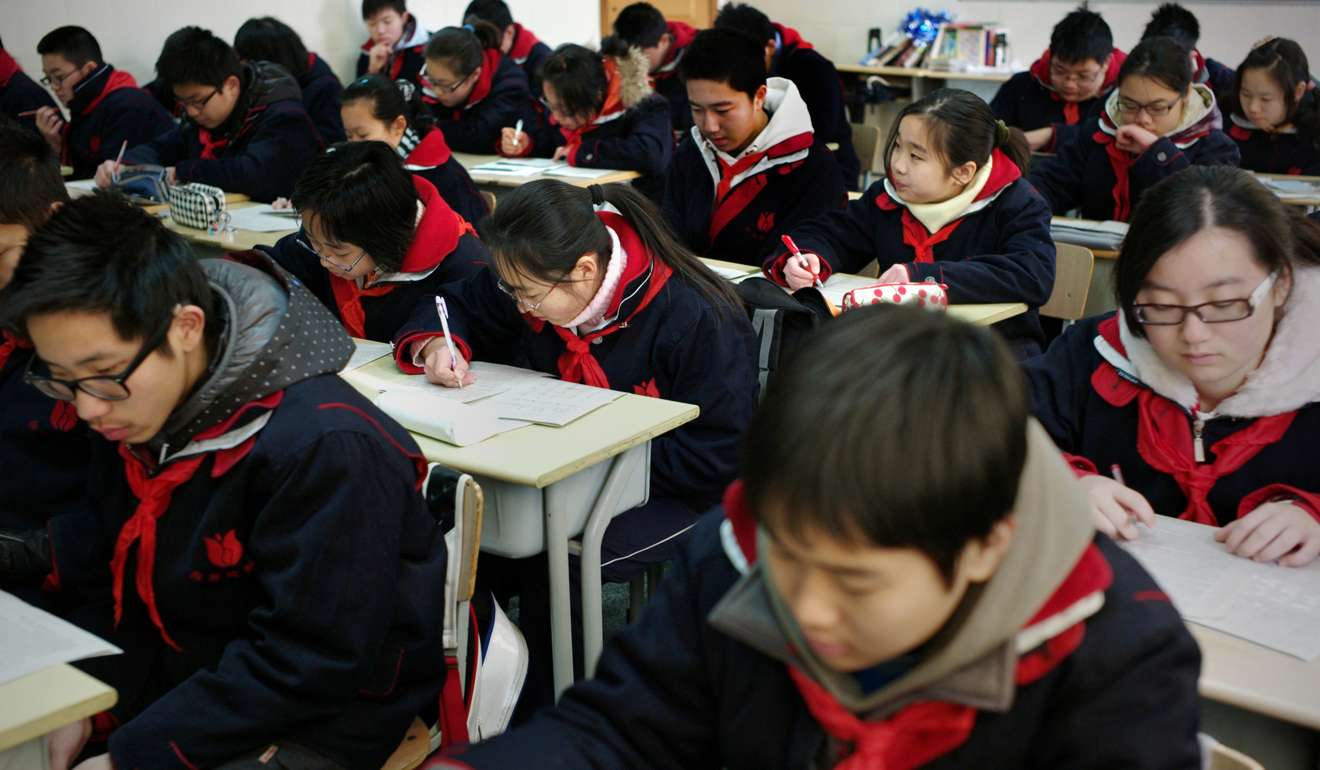
“We can’t come to a conclusion based on the UK’s introduction of our textbook that our country’s maths teaching doesn’t have any problems and we don’t need to reform it,” he wrote.
Xiong said Chinese students scored highly in maths because it was one of core subjects in high school and university entrance examinations. That meant all students, irrespective of whether they had an interest in the subject, had to undergo intensified training in maths, including extracurricular Mathematical Olympiad classes.
In an online survey this month by China Youth Daily, more than half the respondents said one advantage for China’s maths education was that teachers were responsible, but problems included schools paying too much attention to scores and emphasising quiz skills and rote learning.
In Shanghai and other mainland cities, more parents who dislike the Chinese education system have been sending their children to international schools.
According to education think tank NewSchool Insight Media, Shanghai has more international schools than any other affluent mainland city, with 50 privately run and public schools that enrol both Chinese and foreign pupils offering international qualifications such as British A-levels or their American equivalent.
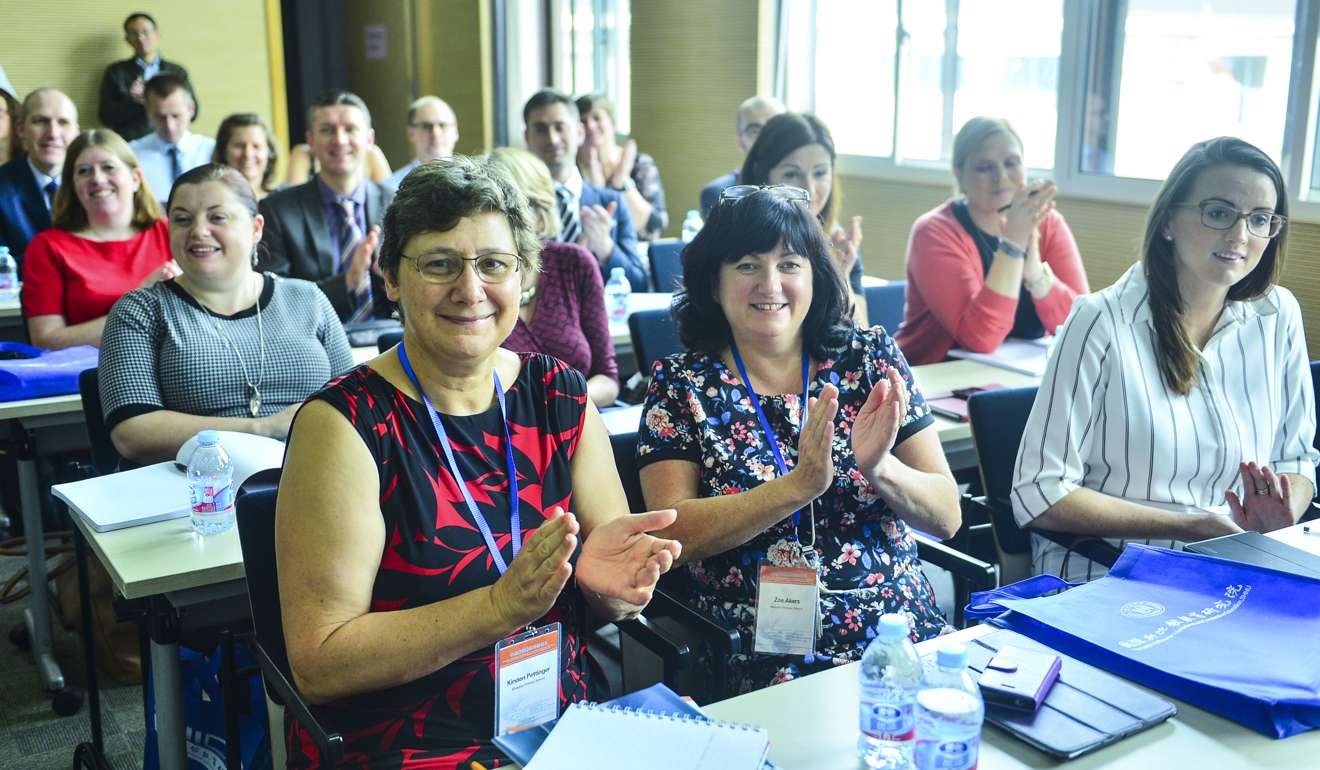
Most of the pupils at such schools are Chinese and Shanghai’s municipal government ordered them last year to focus their teaching on the domestic curriculum, including Marxism.
The introduction of whole foreign curriculums or parts of them in grades one to nine – the basic stage of China’s education system – had infringed on China’s “educational sovereignty”, according to the minutes of a Shanghai education commission meeting last year.
The order briefly sparked panic among parents of children studying at international schools following foreign curriculums but it was hardly ever implemented.
Gao Chen, whose daughter studies in both Chinese and English in primary classes at the bilingual YK Pao School in Shanghai’s Changning district, said her daughter would have more options when applying for universities thanks to its foreign curriculum.
“Shanghai’s textbooks going abroad does not interest me,” she said. “My perception of our country’s education system has not changed.”
Beijing-based education expert Chu Zhaohui said there was little for the Shanghai authorities to celebrate since the deal they signed was only with a foreign publishing company, not the British government, and British schools could choose their own textbooks.
Instead, he said, Shanghai should learn from the British system and adopt an open attitude, allowing its public schools to choose textbooks themselves.
“There are so many excellent overseas textbooks,” he said. “Why hasn’t China introduced one for its primary and middle school students?”
